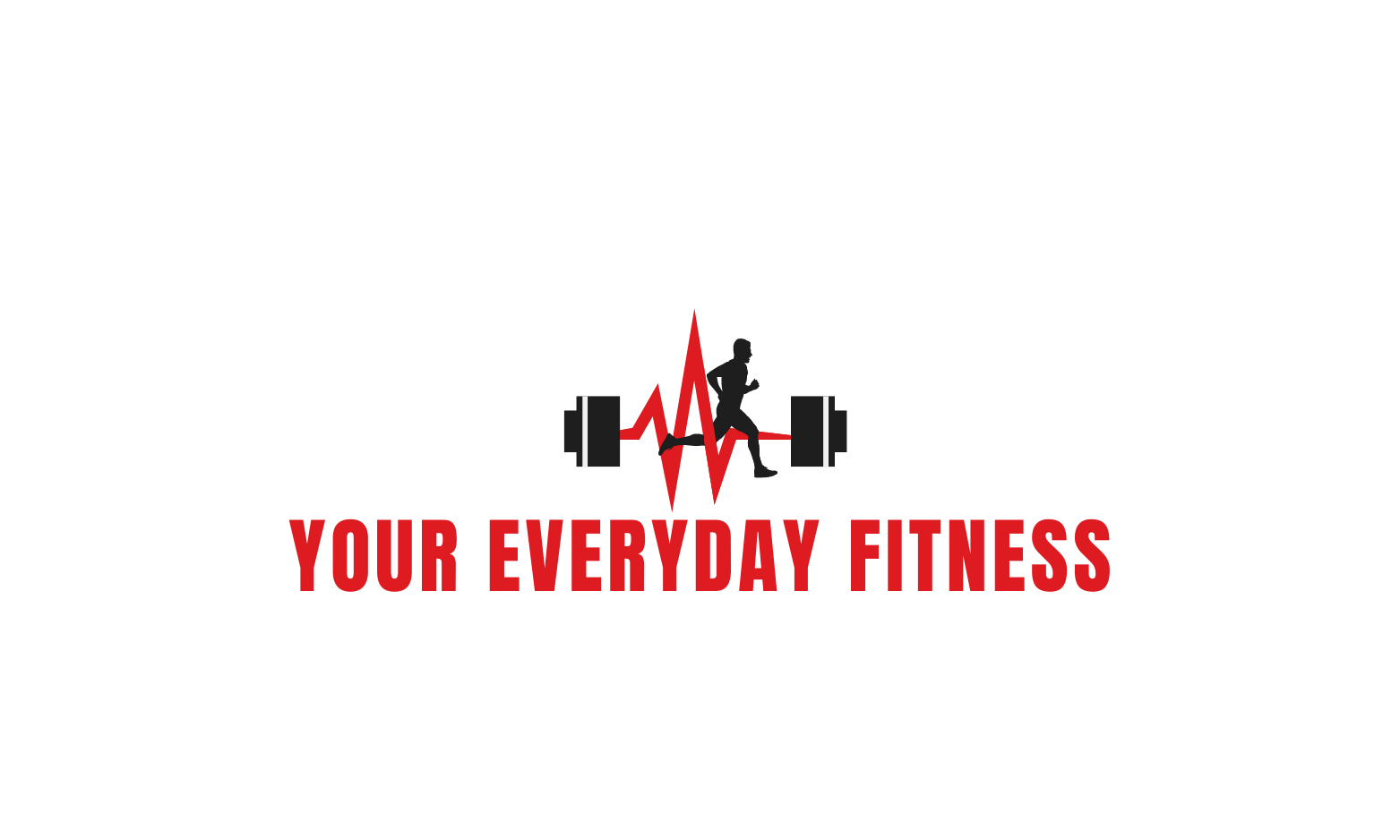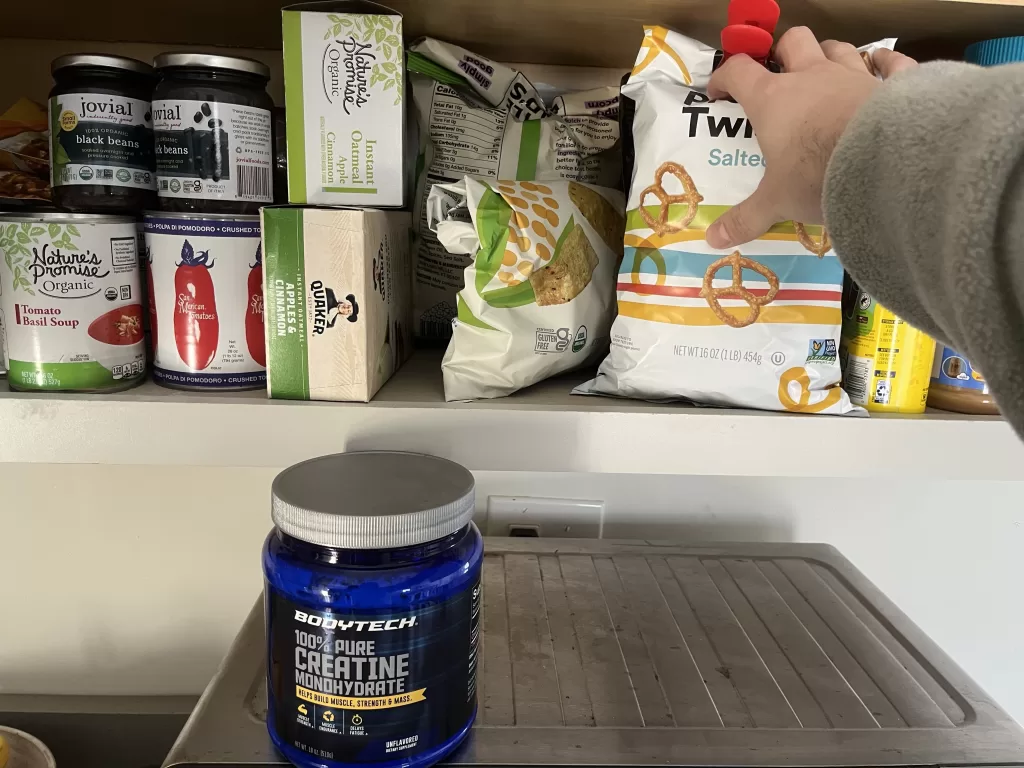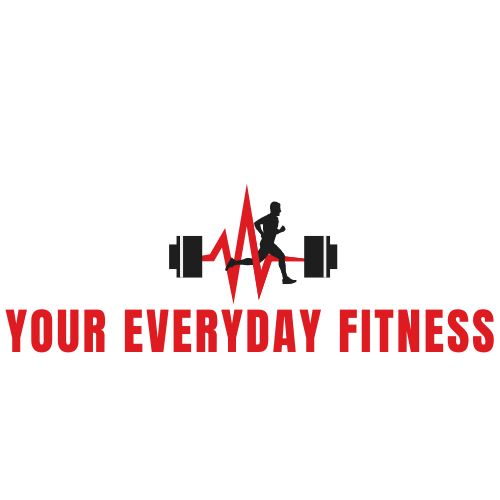So you have just started taking creatine, or you’re thinking of beginning with this popular supplement and you find yourself thinking: “Does creatine make you hungry?” Good question, and you’re not alone!
Many people notice changes in their appetite after adding creatine to their routine, sparking curiosity about how this supplement affects hunger, weight, and overall nutrition. I know that I had some questions when I first started taking creatine years ago.
This article will help you understand the relationship between creatine supplementation and hunger. We’ll go over its role in muscle growth, body weight changes, and why you might feel hungrier while using it.
By the end, you’ll know how to manage your appetite while maximizing the benefits of creatine.
What Is Creatine, and Why Do People Use It?
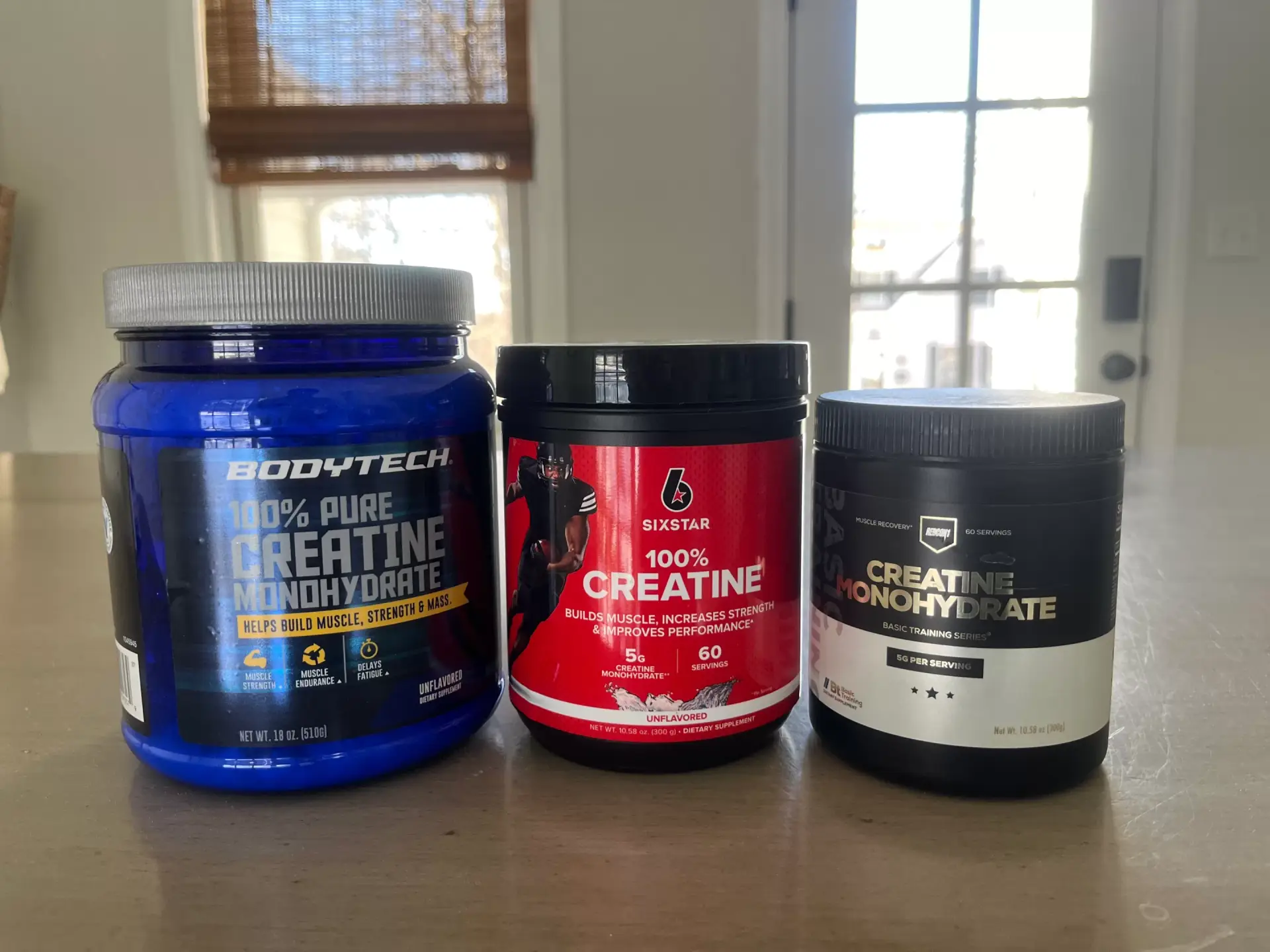
Creatine is a naturally occurring compound made from amino acids. It’s found in small amounts in foods like red meat and fish and is also produced by the liver, kidneys, and pancreas. It is stored in your muscles as creatine phosphate, and plays an important role in producing adenosine triphosphate (ATP)—your body’s main energy source for activities like lifting weights or running.
Many people use creatine supplements, mainly creatine monohydrate, to boost physical performance, build muscle, and recover faster after workouts. Creatine helps increase energy levels during strength training and other high-intensity exercise, increase muscle mass and muscle gains, and improve cellular hydration, which can support endurance and recovery.
Related articles on creatine: Does Creatine Have Caffeine?, Can You Mix Creatine with Protein Powder?, Can You Dry Scoop Creatine?, How Long Does Creatine Stay in Your System? Does Creatine Expire?
Does Creatine Make You Hungry?
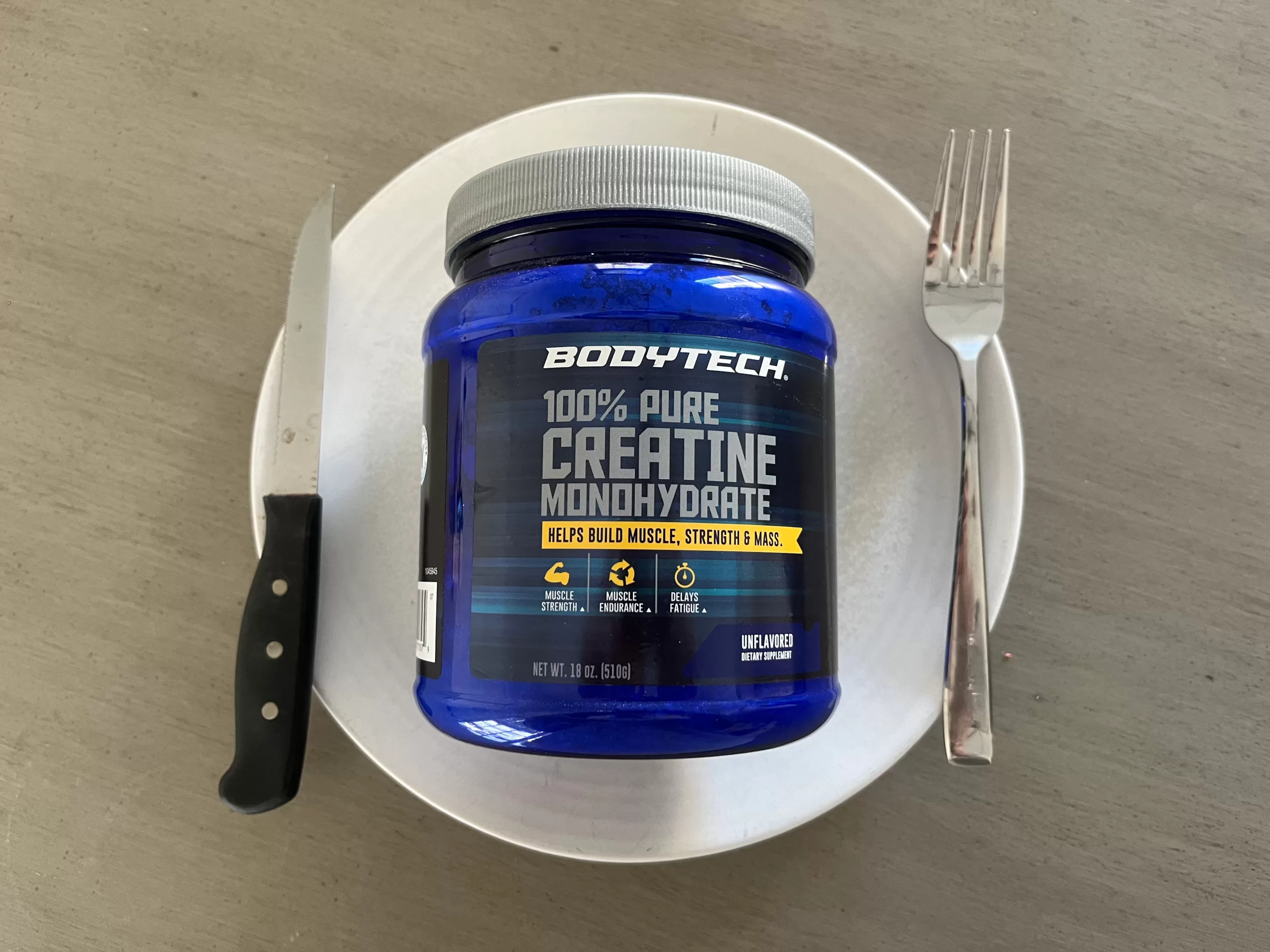
The short answer is: creatine may indirectly influence your hunger. While it doesn’t contain appetite-stimulating properties, the way it interacts with your body could make you feel hungrier.
Lets go over how:
Increased Energy Demands from Muscle Growth
When you start gaining muscle mass, your body needs more calories to support the new tissue.
A study done by the British Journal of Nutrition showed that individuals with higher fat free mass (FFM) (lean tissue, including muscles) consume larger meals and more calories on a daily basis. This suggests that FFM creates an orexigenic drive (hunger-inducing signal) to meet energy demands.
Since creatine supplementation often helps with growing muscle, it’s no surprise that your hunger levels might rise to keep up with your body’s changing energy needs.
Enhanced Workouts Lead to More Calorie Burn
Creatine supplements have been proven to improve workout performance, allowing you to push harder in the gym.
That being said, more intense exercise means you’re burning more energy, which could signal your body to eat more food in order to replenish all that lost fuel.
Cellular Hydration and Fluid Retention
One of the benefits of creatine is its ability to draw more water into your muscle cells, enhancing their size and function. While this fluid retention is great for recovery and strength training, a study published in Physiology & Behavior explains that thirst and hunger can be easily confused.
This misinterpretation means that dehydration can sometimes feel like hunger. So if you’re not drinking enough water while you supplement with creatine, you might feel hungrier when your body is really just thirsty.
Why You Might Feel Hungrier After Starting Creatine
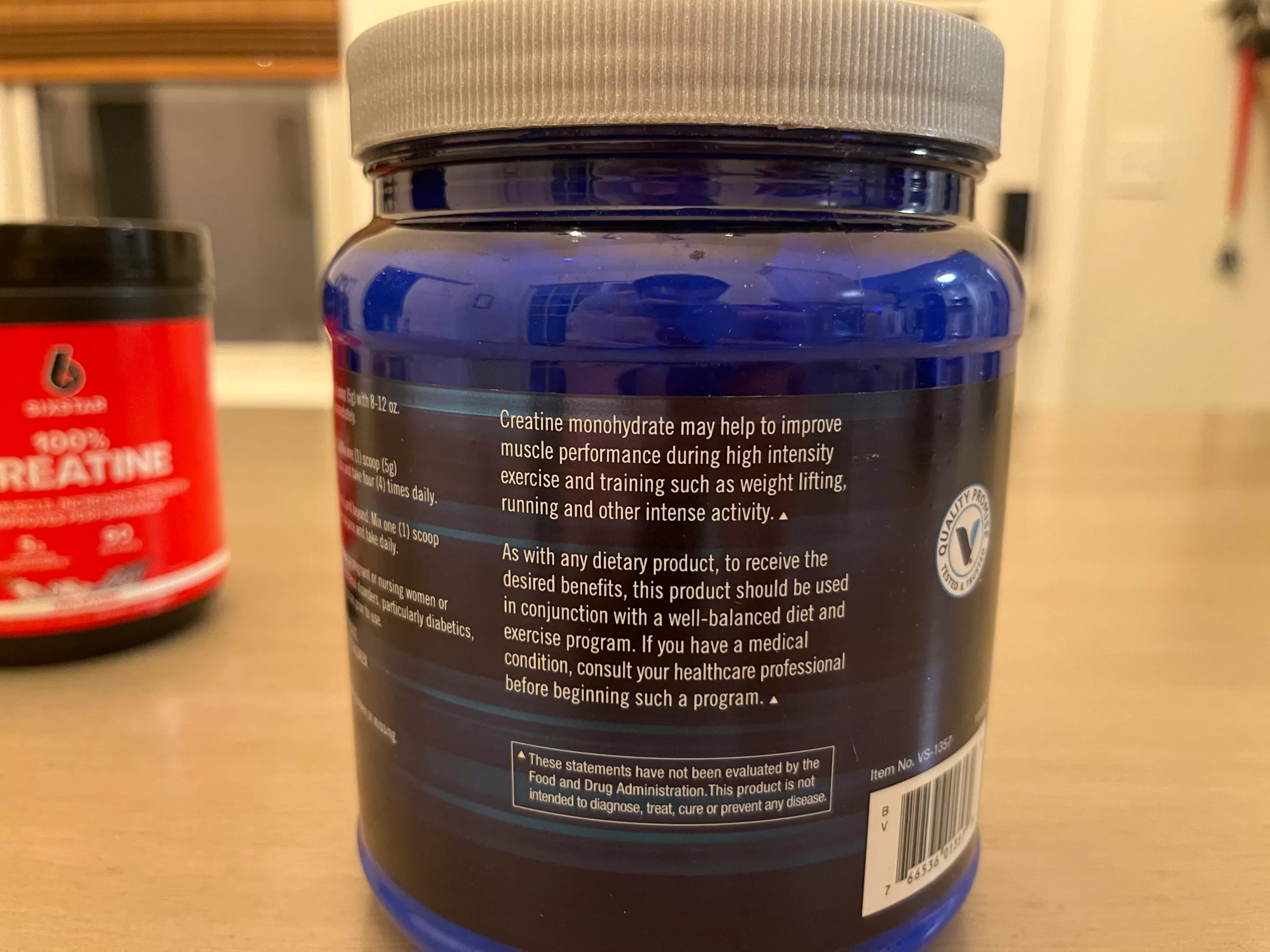
Aside from energy demands and hydration, other factors might contribute to feeling hungrier when using creatine monohydrate:
Muscle Recovery Needs
Working out intensely (which you are probably doing while you take creatine) means that you are causing microtears in your muscle fibers.
Your body repairs these tears using proteins, carbs, and fats, which might increase your cravings for nutrient-rich foods like protein shakes or meals packed with vitamins and minerals.
Changes in Metabolism
Creatine helps build muscle, and building muscle boosts your metabolism, meaning your body burns more calories even when you’re chilling out on the couch.
A study done in the 2nd edition of Appetite and Food Intake showed that resting metabolic rate which accounts for 60–75% of total daily energy expenditure (TEE), has been identified as a strong predictor of hunger, meal size, and daily energy intake.
Higher RMR translates to a greater daily caloric need, which stimulates an increase in appetite and food consumption to meet energy demands.
Psychological and Individual Factors
Some people associate taking supplements with eating more, creating a mental link between the two. Others might experience unique hormonal or digestive reactions, leading to stomach discomfort, cravings, or hunger signals.
One study done by the Department of Medicine at the University of Vermont showed that when brain creatine concentrations were lowered, rats experienced reduced food intake and body weight. This indicates that lower creatine levels in the brain are associated with decreased hunger, and potentially vis versa.
Does Creatine Cause Weight Gain?
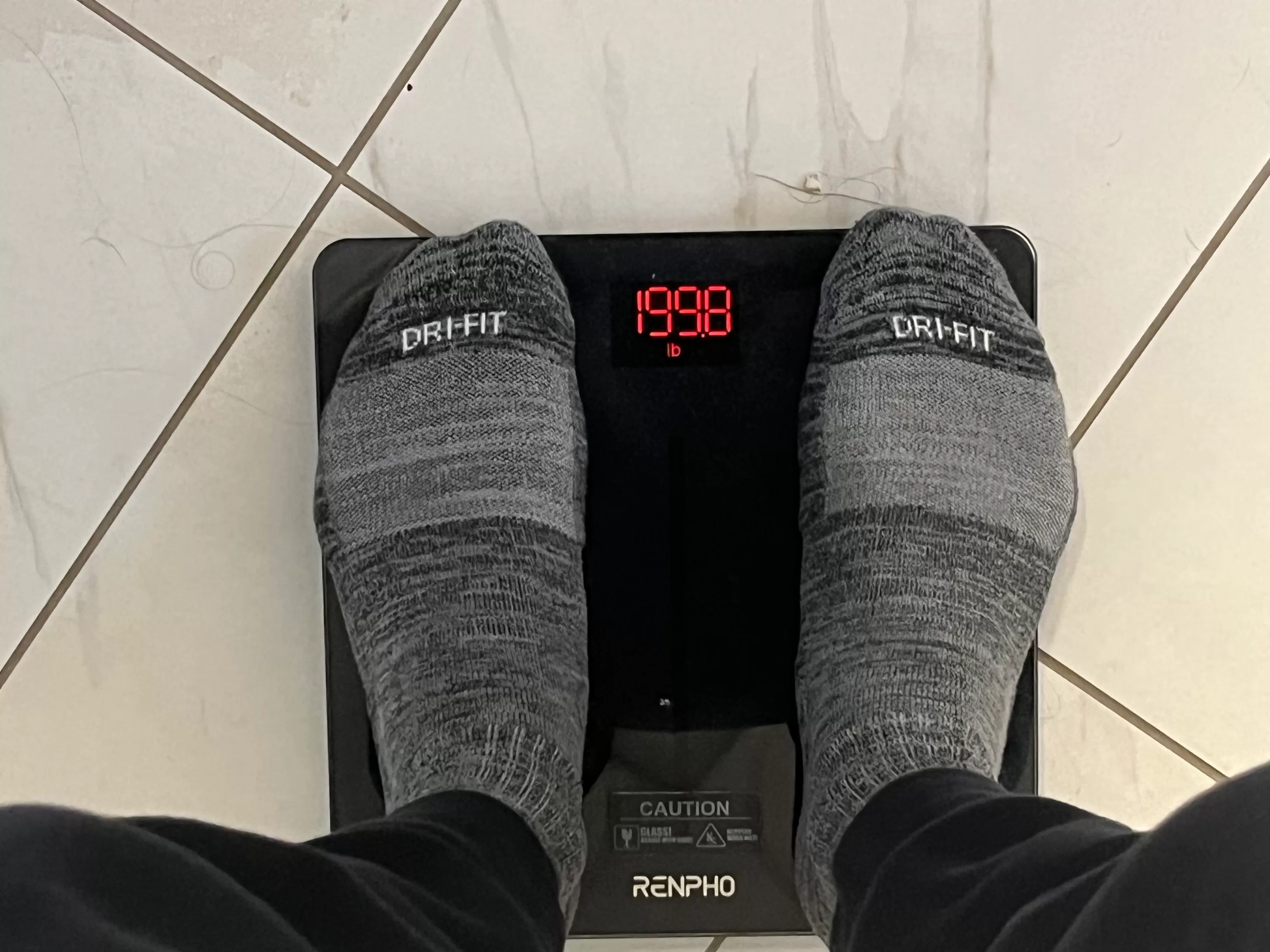
It’s a common myth that creatine supplements cause fat gain. While the scale might go up when you start taking creatine, this is often due to water weight or muscle gains, not fat. Let’s break it down:
Water Retention vs. Fat Gain
When you use creatine monohydrate, your muscles hold onto extra water, which shows up as a slight increase in body weight.
A study from the Journal of Strength and Conditioning found that there was a significant increase in total body weight (TBW) in the creatine group, from 99.4 ± 32.5 pounds to 203.0 ± 33.5 pounds. However, this weight gain was linked to an increase in body water content, which rose significantly from 53.77 ± 1.75 L to 57.15 ± 2.01 L.
It is important to know that this water retention isn’t harmful and it typically stabilizes over time.
Muscle Growth Adds Weight
Strength training combined with creatine can lead to more muscle. As explained by Journal of Musculoskeletal & Neuronal Interactions, muscle tissue weighs more than fat because it is denser, more compact, and metabolically active.
Muscle density is significantly reduced by fat infiltration, which explains the importance of maintaining lean muscle mass. This density difference explains why muscle is “heavier” than fat per unit volume, and why you may see an increase in weight if you are gaining muscle due to creatine intake.
Appetite and Calorie Surplus
If you’re eating more calories than you burn (because of an increased appetite), you will gain weight because you are in a calorie surplus. Of course, there’s always a chance you could gain this weight from fat.
This is not because of the creatine, but rather your diet choices. So, if you stick to healthy foods that won’t pack on unneeded fat gain, you can avoid this.
How to Manage Appetite While Taking Creatine
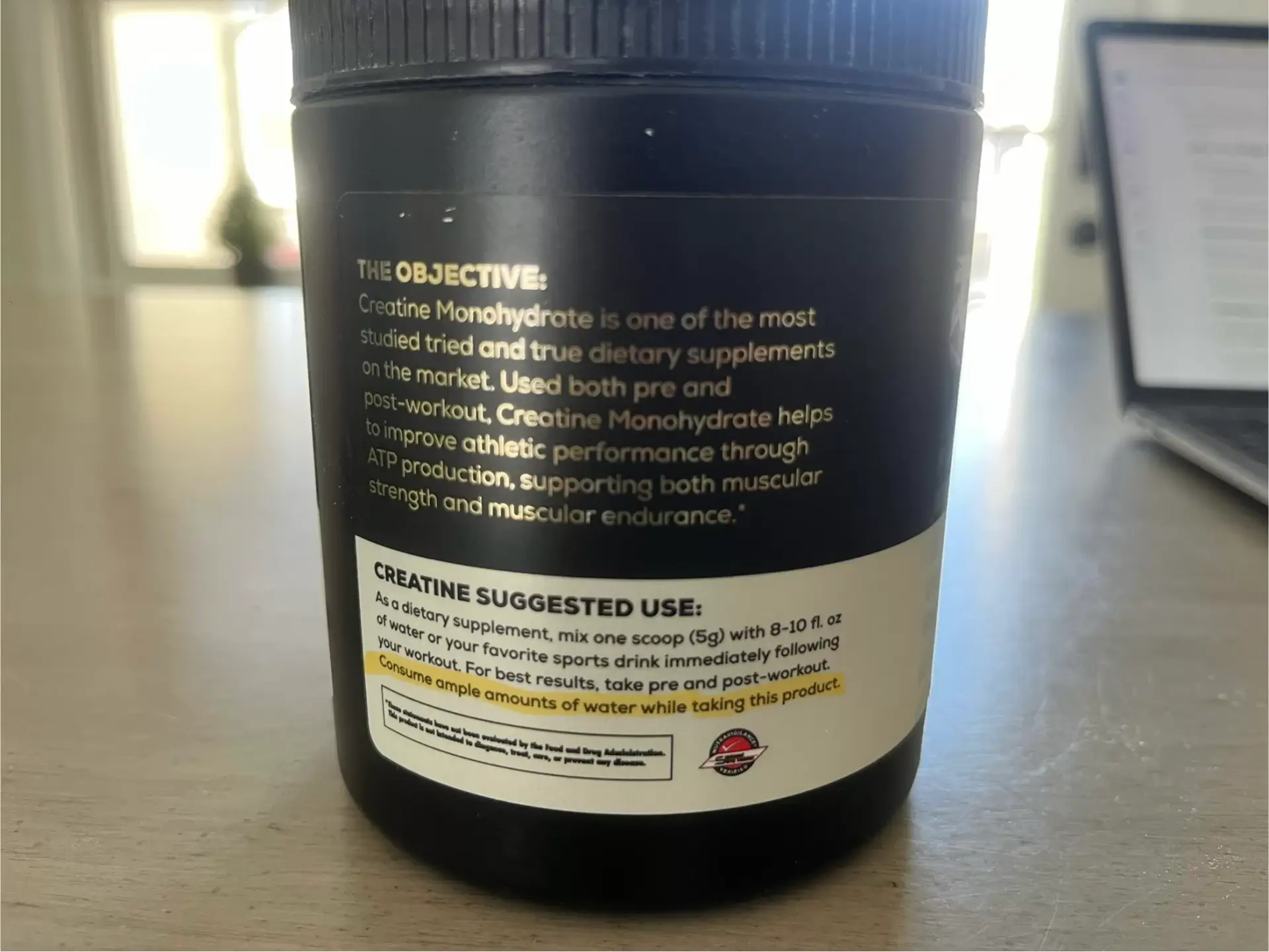
If you’re worried about feeling hungrier or gaining weight, here are some tips to stay on track:
Stick to a Healthy Diet
Focus on nutrient-dense foods like lean proteins, whole grains, fruits, and vegetables. Pairing creatine with a healthy diet makes sure that you’re meeting your body’s needs without eating too many calories.
Stay Consistent With Dosage
The Journal of the International Society of Sports Nutrition recommends that you stick to 3-5g of creatine per day, after a loading phase of 20–25 g/day of creatine monohydrate, divided into 4–5 daily doses of 5 g each.
Taking more than necessary during the loading phase or afterward won’t give you better results and could lead to bloating or stomach discomfort.
Hydrate Properly
Drinking enough water is extremely important for avoiding dehydration, which can sometimes feel like hunger.
Aim for half your body weight in ounces of water daily, especially during intense workouts.
Time Your Meals
Plan meals around your workouts to fuel performance and recovery. Protein shakes or snacks rich in carbs and proteins can help curb hunger after exercise.
One report published in the Cell Press also suggests that eating a larger breakfast and smaller dinner may help control hunger throughout the day, and that morning-loaded eating aligns with the natural circadian rhythm of appetite regulation, which shows reduced hunger responses earlier in the day.
Find out what works best for you in terms of curbing your appetite and still getting proper nutrition.
Track Your Food Intake
A study done by the Journal of Diabetes Research found that individuals who tracked their food intake more than 66% of the program days lost an average of 10 pounds over the year, while rare (<33% of days tracked) and inconsistent trackers (33–66% of days tracked) did not achieve statistically significant or sustained weight loss.
So if you are looking to monitor your calories, watch your weight, and make sure you aren’t overeating by accident, keeping a food journal is the way to go. I use an app on my phone to track my calories and macros everyday, it is very quick and easy, and has helped me make great gains while managing my weight correctly.
Does Creatine Help You Lose Fat?
While creatine supplementation isn’t a direct fat burner, it can support fat loss in other ways. It boosts your calorie burn by increasing muscle mass, improves workout performance leading to higher energy expenditure, and helps maintain strength and muscle gains during a calorie deficit.
The Journal of the International Society of Sports Nutrition conducted 19 studies with over 600 participants. The results? Participants that used creatine supplementation had a greater reduction in body fat percentage than those who did not.
If you pair creatine with regular exercise and a balanced diet, it can play a significant role in helping you lose fat while maintaining muscle mass.
Wrapping It Up
So, does creatine make you hungry? Creatine may influence your appetite indirectly by boosting energy demands, supporting muscle growth, and affecting fluid retention. While some people notice they feel hungrier, this is often a sign that your body is adapting to your fitness routine and increased physical activity.
By focusing on a healthy diet, staying hydrated, and tracking your food intake, you can enjoy the full benefits of creatine, without worrying about unwanted weight gain.
Whether you’re looking to build muscle, boost your performance in the gym or on the track, or simply improve your overall health and fitness, creatine is one of the most well-researched and essential supplements to support your goals.
Just remember to listen to your body, stay consistent, and enjoy the journey!
References
- Staff, Mayo. Clinic. (2023, December 13). Creatine. https://www.mayoclinic.org/drugs-supplements-creatine/art-20347591
- Blundell JE, Caudwell P, Gibbons C, et al. Body composition and appetite: fat-free mass (but not fat mass or BMI) is positively associated with self-determined meal size and daily energy intake in humans. British Journal of Nutrition. 2012;107(3):445-449. doi:10.1017/S0007114511003138
- McKiernan F, Houchins JA, Mattes RD. Relationships between human thirst, hunger, drinking, and feeding. Physiol Behav. 2008 Aug 6;94(5):700-8. doi: 10.1016/j.physbeh.2008.04.007. Epub 2008 Apr 13. PMID: 18499200; PMCID: PMC2467458.
- Hopkins M, Blundell JE. Energy Metabolism and Appetite Control: Separate Roles for Fat-Free Mass and Fat Mass in the Control of Food Intake in Humans. In: Harris RBS, editor. Appetite and Food Intake: Central Control. 2nd edition. Boca Raton (FL): CRC Press/Taylor & Francis; 2017. Chapter 12. Available from: https://www.ncbi.nlm.nih.gov/books/NBK453149/ doi: 10.1201/9781315120171-12
- Kutz MR, Gunter MJ. Creatine monohydrate supplementation on body weight and percent body fat. J Strength Cond Res. 2003 Nov;17(4):817-21. doi: 10.1519/1533-4287(2003)017<0817:cmsobw>2.0.co;2. PMID: 14636103.
- Ramírez-Vélez R, Carrillo HA, Correa-Bautista JE, Schmidt-RioValle J, González-Jiménez E, Correa-Rodríguez M, González-Ruíz K, García-Hermoso A. Fat-to-Muscle Ratio: A New Anthropometric Indicator as a Screening Tool for Metabolic Syndrome in Young Colombian People. Nutrients. 2018 Aug 7;10(8):1027. doi: 10.3390/nu10081027. PMID: 30087234; PMCID: PMC6115891.
- Wong AK, Beattie KA, Min KK, Gordon C, Pickard L, Papaioannou A, Adachi JD; Canadian Multicentre Osteoporosis Study (CaMos) Research Group. Peripheral quantitative computed tomography-derived muscle density and peripheral magnetic resonance imaging-derived muscle adiposity: precision and associations with fragility fractures in women. J Musculoskelet Neuronal Interact. 2014 Dec;14(4):401-10. PMID: 25524965; PMCID: PMC5092150
- Ingels JS, Misra R, Stewart J, Lucke-Wold B, Shawley-Brzoska S. The Effect of Adherence to Dietary Tracking on Weight Loss: Using HLM to Model Weight Loss over Time. J Diabetes Res. 2017;2017:6951495. doi: 10.1155/2017/6951495. Epub 2017 Aug 9. PMID: 28852651; PMCID: PMC5568610.
- Cooper R, Naclerio F, Allgrove J, Jimenez A. Creatine supplementation with specific view to exercise/sports performance: an update. J Int Soc Sports Nutr. 2012 Jul 20;9(1):33. doi: 10.1186/1550-2783-9-33. PMID: 22817979; PMCID: PMC3407788.
- Ruddick-Collins LC, Morgan PJ, Fyfe CL, Filipe JAN, Horgan GW, Westerterp KR, Johnston JD, Johnstone AM. Timing of daily calorie loading affects appetite and hunger responses without changes in energy metabolism in healthy subjects with obesity. Cell Metab. 2022 Oct 4;34(10):1472-1485.e6. doi: 10.1016/j.cmet.2022.08.001. Epub 2022 Sep 9. PMID: 36087576; PMCID: PMC9605877.
- Antonio J, Candow DG, Forbes SC, Gualano B, Jagim AR, Kreider RB, Rawson ES, Smith-Ryan AE, VanDusseldorp TA, Willoughby DS, Ziegenfuss TN. Common questions and misconceptions about creatine supplementation: what does the scientific evidence really show? J Int Soc Sports Nutr. 2021 Feb 8;18(1):13. doi: 10.1186/s12970-021-00412-w. PMID: 33557850; PMCID: PMC7871530.
